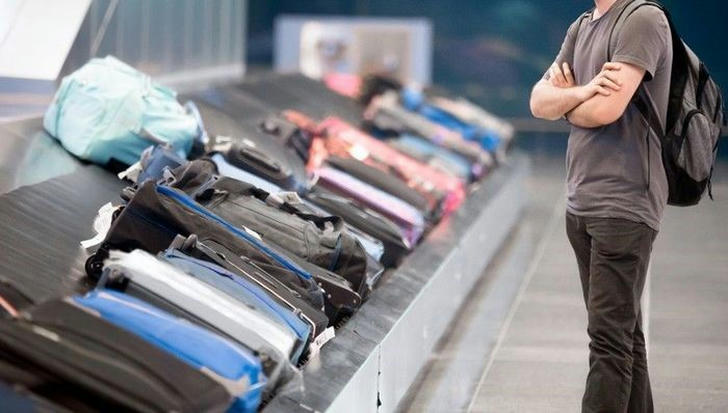5 reasons why you must buy travel insurance when traveling abroad
Introduction
Being prepared for international travel is essential to ensuring a smooth, stress-free trip. Unexpected situations, such as medical emergencies or lost belongings, can disrupt your trip and cause significant anxiety. A well-planned trip allows you to effectively handle these situations, minimizing stress and financial loss. Ultimately, being prepared can enhance your overall enjoyment, allowing you to focus on exploring new cultures and creating lasting memories, rather than worrying about the potential pitfalls of traveling.WhenHaving a pet is one of life's greatest joys, but it also comes with responsibilities. Our pets, just like us, can face unexpected health issues, accidents, or develop long-term conditions that need medical care. And when something happens, veterinary bills can pile up quickly, adding stress to an already emotional situation. This is where pet insurance steps in, helping to cover the costs so you can focus on your pet's health instead of worrying about how to pay for it. By getting pet insurance, you’re investing in peace of mind and giving your pet access to the care they deserve, whether it’s a routine check-up or emergency surgery. buying travel insurance, seniors need to focus on a few important things: ensuring their existing health issues are covered, having enough medical coverage, and understanding what the policy doesn’t cover. They should also check for any age limits and whether the plan covers trip cancellations. To save money, seniors can compare prices, use senior discounts, consider plans for multiple trips, and see if they already have some coverage. Smart planning helps get good coverage without overspending.

Medical emergencies abroad
Medical emergencies abroad can arise from various situations that threaten a traveler’s health and safety. Common emergencies include accidents and injuries, such as vehicle crashes, falls, or mishaps during activities like hiking and skiing, leading to fractures or concussions. Food and waterborne illnesses, such as traveler’s diarrhea and food poisoning, can occur from consuming contaminated food or drink, often requiring medical attention.
Travelers may also contract infectious diseases like malaria, dengue fever, or typhoid, particularly in tropical regions. Severe allergic reactions from unfamiliar foods or insect stings can necessitate urgent medical care. Heat-related illnesses, including heat exhaustion and heat stroke, pose risks in hot climates.
Additionally, individuals with chronic conditions may face emergencies related to their health issues. Other potential emergencies include respiratory infections, heart attacks, strokes, and mental health crises, highlighting the importance of preparation and having adequate travel insurance for timely assistance.

Trip cancellation and interruption
Travel cancellations and disruptions can occur due to various factors that impact transportation and safety. Weather conditions are a primary cause, with severe storms, hurricanes, or heavy snow leading to flight delays or cancellations. Technical issues within airlines, such as mechanical failures, can ground flights unexpectedly.
Political instability or civil unrest in a destination may prompt airlines to cancel flights for safety reasons. Health crises, such as outbreaks of diseases like COVID-19, can result in travel restrictions or border closures. Natural disasters like earthquakes or floods can create hazardous conditions, disrupting travel plans.
Additionally, overbooking by airlines can lead to denied boarding for passengers when flights are full. Security threats may also result in increased security measures or cancellations. Finally, personal emergencies faced by travelers, such as health issues or family matters, can necessitate sudden changes in travel plans, making it essential to have flexible arrangements and insurance coverage.

Lost or delayed luggage
Travel insurance typically provides coverage for luggage loss or delay, ensuring travelers are protected during their journeys. If your luggage is lost or stolen, travel insurance can reimburse you for the value of the lost items, including clothing, electronics, and personal belongings, up to the policy’s limit.
In cases of luggage delay, insurance can cover the cost of purchasing essential items such as clothing, toiletries, and other necessities while you wait for your bags to arrive. This coverage is especially beneficial if the delay exceeds a specified number of hours, typically 12 to 24 hours, depending on the policy.
It’s important to keep all receipts and document the loss with the airline or transport provider to facilitate claims. Each policy varies, so travelers should carefully review the terms and conditions, including coverage limits and exclusions, to ensure adequate protection against luggage-related issues during their travels.

Travel delays and missed connections
Travel insurance offers coverage for travel delays and missed connections, providing essential financial protection during unexpected disruptions. If your flight is delayed due to reasons like weather, mechanical issues, or strikes, the insurance can reimburse you for additional expenses incurred, such as meals, accommodations, and transportation while you wait.
In the case of missed connections, travel insurance can cover costs associated with rebooking flights and any necessary overnight stays if your initial flight delay prevents you from catching a connecting flight.
Some policies also provide coverage for missed connections caused by delays in your inbound flight, ensuring that you are not left stranded. Additionally, travel insurance may cover certain non-refundable expenses related to the trip, such as hotel bookings and tour costs, if you miss your original travel arrangements.
As policies vary, travelers should carefully review their coverage details, including limits and specific conditions, to ensure they are adequately protected.
Emergency evacuation and repatriation
Travel insurance plays a crucial role in emergency evacuation and repatriation, providing vital support during unforeseen circumstances. If a traveler faces a medical emergency or severe situation—such as natural disasters, civil unrest, or serious illness—travel insurance can cover the costs associated with emergency evacuation to the nearest appropriate medical facility or back to their home country.
This coverage is especially important in regions with limited healthcare access, where timely evacuation can be life-saving. Insurance policies typically coordinate with medical professionals and evacuation services to ensure a safe transfer.
In cases of repatriation, if a traveler passes away abroad, travel insurance can cover the costs of returning the body to their home country, alleviating the financial burden on grieving families.
By providing these critical services, travel insurance not only ensures access to necessary medical care but also offers peace of mind, knowing that support is available during emergencies while traveling.
User case for travel insurance
Consider the case of Sarah, an avid traveler planning a two-week trip to Southeast Asia. She purchased travel insurance to safeguard her journey. While exploring a remote area, she suffered a severe ankle sprain, requiring immediate medical attention. Thanks to her insurance, Sarah was evacuated to a nearby hospital, where her medical expenses were covered, preventing significant out-of-pocket costs.
Additionally, during her trip, a tropical storm caused flight cancellations, leaving her stranded. Her travel insurance reimbursed her for unexpected accommodation and meal expenses while she waited for her rescheduled flight.
Unfortunately, her luggage was delayed for over 24 hours, forcing her to buy essential items. Her travel insurance compensated her for these expenses as well.
In this scenario, travel insurance proved invaluable, protecting Sarah from financial losses due to medical emergencies, travel disruptions, and lost luggage, ultimately allowing her to focus on enjoying her adventure rather than worrying about unforeseen challenges.
Conclusion
In summary, travel insurance provides essential coverage for various unforeseen circumstances that can disrupt your trip.
•Medical Emergencies Abroad: Coverage for unexpected medical expenses ensures you receive timely care, including hospital visits, surgeries, and medication costs.
•Trip Cancellation and Interruption: If you need to cancel or cut short your trip due to unforeseen events like illness or family emergencies, travel insurance reimburses non-refundable costs such as flights and accommodations.
•Baggage Loss or Delay: Insurance compensates you for lost or stolen luggage, as well as covering expenses for essential items while your bags are delayed, allowing you to manage the inconvenience smoothly.
•Travel Delays and Missed Connections: Travel insurance helps cover additional expenses, such as meals and overnight accommodations, due to flight delays or missed connections, ensuring you’re not left financially burdened.
•Emergency Evacuation and Repatriation: In critical situations, travel insurance facilitates necessary evacuations and covers costs for returning you home in the event of severe illness or injury.
By investing in comprehensive travel insurance, you can safeguard against these risks, allowing you to travel with confidence and peace of mind.
